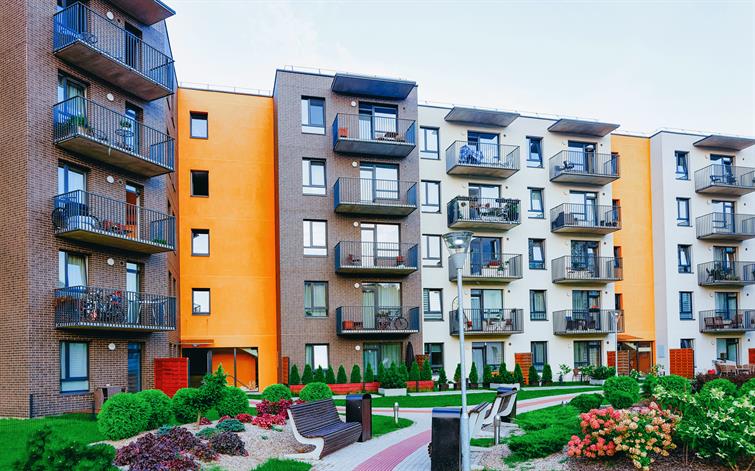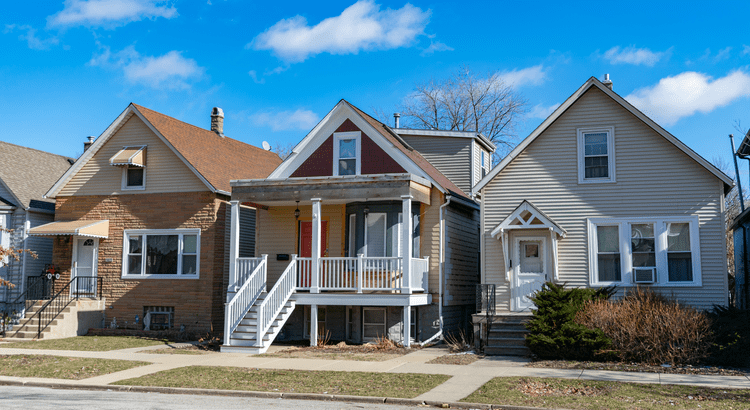What Makes a Rental Property Habitable?

As a landlord, it’s crucial to know renter rights, with one of the most important being the implied warranty of habitability. This means that tenants have a right to a habitable living space, but state statutes differ on the details of this definition.
What Is the Implied Warranty of Habitability?
An implied warranty (also known as a covenant or a right) of habitability means that the landlord must guarantee that the rental property is in safe, working order for the tenant’s lease term. The implied warranty of habitability requires landlords to:
- Maintain the structure of the property and keep the plumbing and electrical systems in working order
- Make major repairs in a timely manner with proper notice
- Keep the rental safe and free from unsanitary conditions that constitute a health hazard
What Constitutes Unsanitary Conditions?
Most sanitation requirements are commonly known and understood by landlords. For example, landlords must provide some method of garbage disposal, even if they ask tenants to pay for it, as well as keep the sewage system in working order. Landlords must also disclose the existence of lead paint or asbestos in the unit, and even after disclosure, they could be liable for health problems that result from these pollutants.
However, there are some sanitation requirements that are not as clear, such as mold and pest/rodent control. Although it is a landlord’s responsibility to prevent mold and pest/rodent infestations, the tenant must do their part as well by maintaining the property’s cleanliness and reporting any issues to the landlord.
Mold
Very few of the many mold strains that can grow inside a dwelling are toxic, but those that are can cause extreme discomfort for people and can amount to a health hazard. The presence of mold in a rental property often signifies leaks or other conditions that the landlord should repair (and be made aware of by the tenant). Mold can also be the result of a lack of properly cleaning and maintaining the property. It’s important to include your expectations for cleanliness in the lease so the tenant is aware of their responsibilities, as well as the consequences of not upholding the terms of the lease.
Pest infestation
A pest infestation that existed before tenants moved in is clearly the landlord’s problem to fix. However, what about an infestation (of roaches, spiders, rats, etc.) that begins while tenants are occupying the rental? A pest or rodent infestation could occur from a lack of cleanliness, but they are fairly common regardless. Extermination is still ultimately the landlord’s responsibility, but if the problem persists due to a tenant’s neglect of the property’s cleanliness, the landlord may want to consider terminating the lease agreement (with probable cause) to get their investment back to its original state and prevent further damage.
Keep in mind that hoarding is a disorder protected by the FHA, so if the infestation is due to this, you cannot evict your tenant for this reason alone. Check your state laws before you make any decisions.
What Amenities Make a Rental Property Habitable?
Certain aspects of a rental property must be available to tenants, including:
Lighting
Proper lighting is an essential amenity in a rental property, and the landlord is responsible for maintaining it. This obligation applies to area lighting, but not necessarily to table lamps, work lights, and other specialty lighting. When essential room lights go out, or any other electrical systems malfunction, the landlord is required to repair them in a timely manner.
Heating
Heating is essential to a rental property’s habitability, and some states make very specific stipulations about habitable temperatures. It’s important to know the laws in your state, as well as those set by the municipality. San Francisco and New York are two examples of states that have established their own minimum temperature requirements for rental units.
Air conditioning
A lack of air conditioning doesn’t necessarily make a rental property uninhabitable, but it is required in a few states, particularly in southern states where temperatures surge in the summer months, so check your state laws to see if air conditioning is required in your area. If a tenant moves into a rental with a working air conditioner, it’s usually the landlord’s responsibility to keep it in working order through routine HVAC inspections as a contractual obligation. If the rental doesn’t come with an air conditioner, then the landlord has no obligation to install one (unless local laws state otherwise).
Appliances
Appliances are also considered a bonus amenity in a rental, as far as the law is concerned. However, the landlord has a contractual obligation to repair all appliances that come with the unit, so if the stove or refrigerator breaks, the landlord must repair or replace it. There is no law that forces this on the grounds of habitability, but if you intend to keep the landlord-tenant relationship in good standing, it’s in your best interest to repair the appliance(s) in a timely manner.
Are Smoke Alarms, Carbon Monoxide Detectors, and Emergency Exits Required?
Most fire marshals agree that a residential unit isn’t habitable if it doesn’t have smoke alarms, and in rental properties, it’s the landlord’s responsibility to service them. Check your state laws for specifics on the matter. For landlords who don’t know what type of smoke alarms to use or where to put them in the unit, FEMA provides a state-by-state guide. The laws regarding carbon monoxide detectors differ at a state level, but more states are beginning to require them in rental properties. Some state laws even specify that landlords are responsible for installing carbon monoxide detectors and maintaining them.
Every area where a tenant could sleep in a unit should have an emergency exit. The International Residential Code sets a minimum exit area of 5.7 square feet. When windows aren’t large enough to function as emergency exits, or if a basement bedroom lacks windows, some other means of an emergency exit must exist to make the rental property habitable.
When a Problem Arises in Your Rental Property
Aside from simple fixes like plunging a toilet or replacing a lightbulb, landlords should make it clear in the lease that tenants should not make repairs on their own. If an emergency occurs that makes a rental temporarily uninhabitable, like a broken toilet or a roof leak, the tenant should contact the landlord or property manager as soon as possible. In the lease, make it clear to tenants the importance of letting you know when problems arise so that you can make repairs. Once you’re aware of the problem, let your tenant know when they can expect the issue to be repaired and give them proper notice before entering the property.
Share this post




